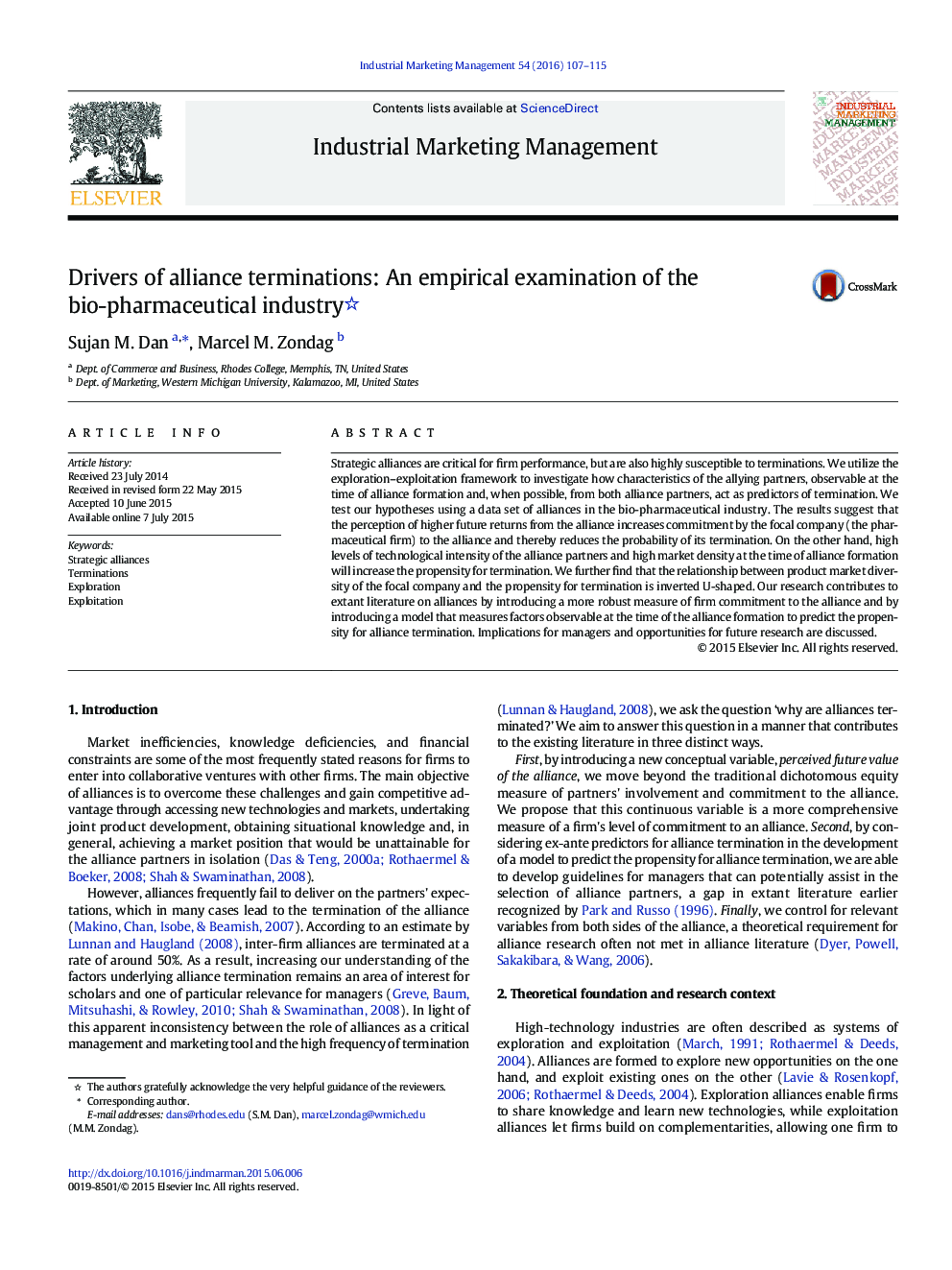| Article ID | Journal | Published Year | Pages | File Type |
|---|---|---|---|---|
| 1027406 | Industrial Marketing Management | 2016 | 9 Pages |
Abstract
Strategic alliances are critical for firm performance, but are also highly susceptible to terminations. We utilize the exploration-exploitation framework to investigate how characteristics of the allying partners, observable at the time of alliance formation and, when possible, from both alliance partners, act as predictors of termination. We test our hypotheses using a data set of alliances in the bio-pharmaceutical industry. The results suggest that the perception of higher future returns from the alliance increases commitment by the focal company (the pharmaceutical firm) to the alliance and thereby reduces the probability of its termination. On the other hand, high levels of technological intensity of the alliance partners and high market density at the time of alliance formation will increase the propensity for termination. We further find that the relationship between product market diversity of the focal company and the propensity for termination is inverted U-shaped. Our research contributes to extant literature on alliances by introducing a more robust measure of firm commitment to the alliance and by introducing a model that measures factors observable at the time of the alliance formation to predict the propensity for alliance termination. Implications for managers and opportunities for future research are discussed.
Related Topics
Social Sciences and Humanities
Business, Management and Accounting
Marketing
Authors
Sujan M. Dan, Marcel M. Zondag,
